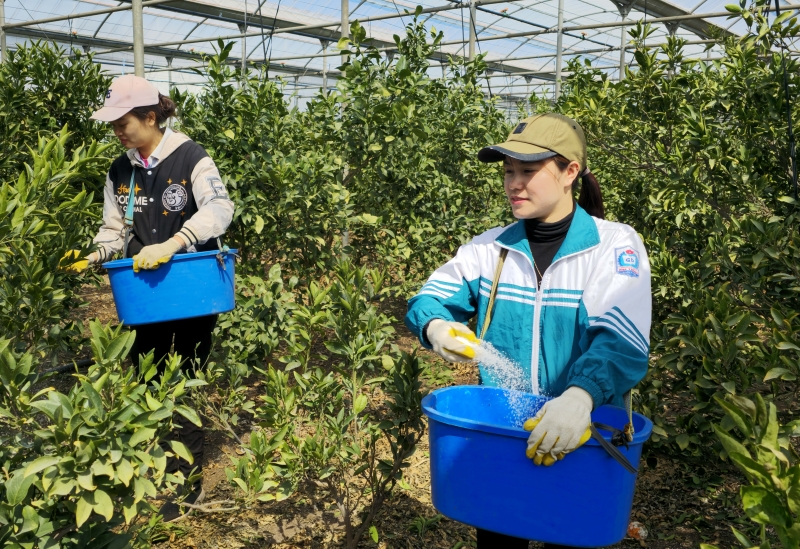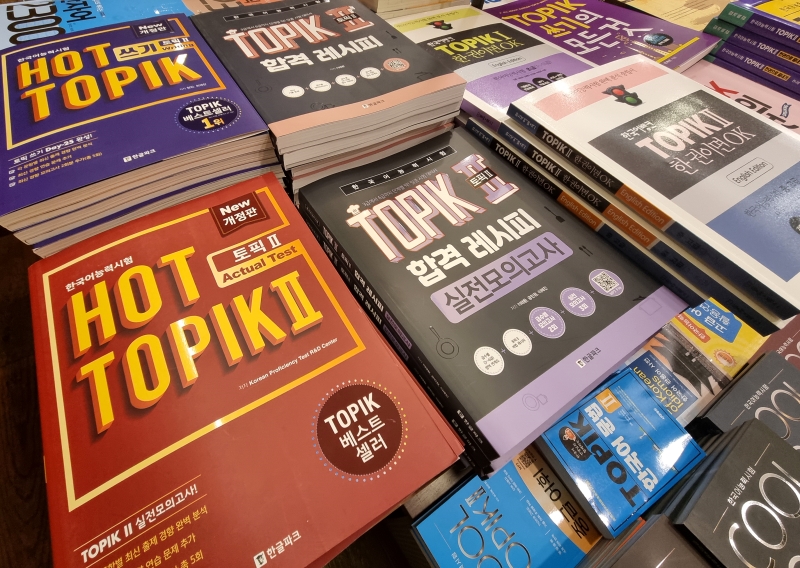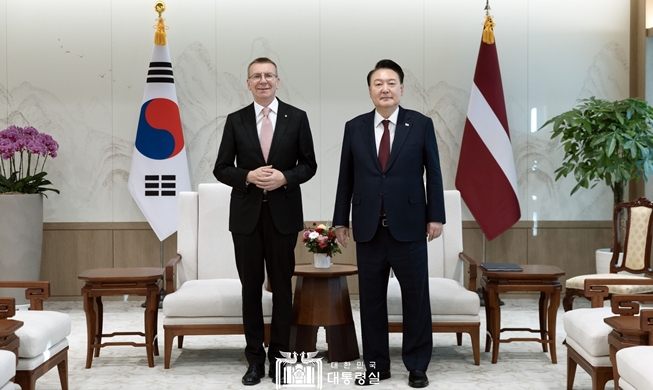
A combined 74,689 E-8 (seasonal worker) visas will be issued from this year under an advance system for visa issuance volume. Shown are seasonal workers from Vietnam in March 2024 spraying fertilizer at a tangerine orchard in Namwon-eup Township of Seogwipo, Jeju Island. (Yonhap News)
By Aisylu Akhmetzianova
New measures this year will seek to help expats better adjust to life in Korea.
The following are policy changes for foreign nationals who either plan to visit Korea or live there.
First, a system to preannounce visa issuance volume from this year will manage the influx of foreign workers in a more systematic manner. This method analyzes labor shortage scale and the effects of such an inflow by visa type to set and announce the scale of visas issued to secure qualified workers in a timely manner.
The visa quotas are 35,000 for the E-7-4 (skilled worker), 74,689 for the E-8 (seasonal worker), 130,000 for the E-9 (those under the Employment Permit System) and 23,300 for the E-10 (vessel crew). Also this year, a pilot program for the E-7-3 (technician) will cover four new sectors including welding and painting in construction machinery manufacturing.
Another change is a pilot project for region-specific visas. The Ministry of Justice from March will select local governments for this project, which is scheduled to run through next year.
The metropolitan visa system allows metropolitan cities and local governments to set their visa systems to reflect their area characteristics and meet their economic and social needs in line with national immigration policy. The initial targets are international students (D-2) and skilled workers (E-7).
A mobile ID for registered expats launched on Jan. 10 has the same validity as a physical card. It is available to all registered foreign residents aged 14 or older with smartphones in their names.

The online edition of the Test of Proficiency in Korean (TOPIK) from this year will be offered six times, up from three. Shown are TOPIK textbooks at Kyobo Bookstore's Gwanghwamun branch in Seoul's Jongno-gu District. (Aisylu Akhmetzianova)
The surging popularity of the Korean language has spurred the doubling of the number of times the internet-based test (IBT) of the Test of Proficiency in Korean (TOPIK) is given per year. The number of countries where TOPIK is offered will also jump from six to 13 with the addition of Guam (U.S.), Vietnam, Thailand, Malaysia, Paraguay, Pakistan and Romania.
The paper-based test, which is conducted separately from the IBT format, is offered six times a year and the speaking test three.
Since Jan. 1, social integration education for immigrants, which had been fully funded by the government since 2009 to help expats adapt to society and get self-reliant, has incurred a fee.
Thus the first four parts of the five-stage program from next year will each cost KRW 100,000 in tuition. The fifth and final phase will be KRW 70,000 for the basic course and KRW 30,000 for the advanced one.
The number of seasonal workers a marriage immigrant can invite to the country will be halved from 20 relatives within four degrees of kinship to 10 siblings (spouse included).
[email protected]
